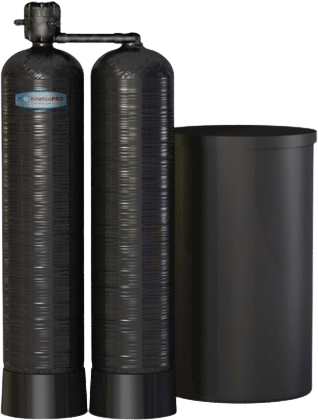Avoid Problems From Hard Water With Efficient Arlington Water Softeners
For homeowners across the DFW Metro area, hard water is a common issue that often goes unnoticed. Yet, it can have a surprising impact on your home’s efficiency and your monthly expenses. At Shelton’s Water, we’re here to explain how hard water can increase your energy bills and how you can address this problem effectively.
When you invest in a water softener from our team, you can expect excellent water quality in your Arlington home. Read on to learn more about the hidden costs of having hard water and how managing it makes a noticeable difference in your budget.
Does Hard Water Increase Water Bills?
Yes, hard water can increase water bills over time. It often requires more detergent for cleaning, more time for water heaters to do their job and more water for tasks that would otherwise require less.
All of these factors contribute to increased water and energy use. These issues make high water hardness an invisible but impactful drain on your monthly expenses.
The Hidden Costs Of Having Hard Water
In addition to direct impacts on your water and energy bills, hard water can also lead to:
- Frequent appliance repairs — Hard water shortens the lifespan of major appliances, requiring frequent maintenance and potentially premature replacements.
- Increased detergent use — Hard water and soap don’t lather well, meaning you need more soap and detergent to clean clothes and dishes effectively. This also means that you’ll need to add soap to your grocery list more often.
- Lower efficiency of heating systems — Mineral deposits build up on heating elements. This issue requires these systems to use more power to achieve the same temperature.
How Does Hard Water Affect Your Appliances?
When hard water flows through your home’s appliances, it doesn’t pass through easily. The mineral deposits it leaves behind can interfere with functionality, causing increased energy use and potentially unexpected breakdowns.
Let’s explore the specific ways it affects different appliances and the costs that come with it.
1. Reduces Efficiency Of Water Heaters
Water heating systems are highly vulnerable to the effects of hard water. As the water heats, the hard minerals separate, creating a thick layer of deposits at the bottom of the unit’s tank.
This buildup makes it challenging for the water heater to do its job. The deposits cause it to work harder and use more energy to heat water. This additional workload can increase your energy bills and can shorten the lifespan of your hot water system.
2. Affects Washing Machines And Dishwashers
Mineral buildup can also impact the efficiency of washing machines and dishwashers. Deposits can settle within pipes and on heating elements, forcing these appliances to work harder. The result is higher energy costs and potential repairs due to clogged pipes or worn-out components.
Moreover, because hard water doesn’t dissolve soap efficiently, it can lead to additional cycles or more detergent use. This adds additional expense on top of your utility costs over time.
3. Impacts Plumbing Systems
Over time, hard minerals accumulate inside your home’s plumbing, narrowing the pipes and reducing water flow. This restricted water flow forces your pumps and other systems to work overtime. This excess strain results in a subtle but continuous increase in energy use.
Additionally, restricted water flow often translates to a higher water bill. This occurs because water is required to perform everyday tasks, like taking a shower or doing laundry.
What Can You Do About Hard Water?
Hard water in Texas is a prevalent issue, particularly in areas like Arlington and the Dallas-Fort Worth Metropolitan area. Luckily, Shelton’s Water offers residential water softeners designed to tackle this common problem. A whole-house water softener can be an effective way to manage hard water and reduce its impact on your home and energy bills.
Lower Your Energy Bills With Shelton’s Water
Dealing with hard water in Texas can be challenging. However, ignoring it may be costing you more than you realize! From raising your utility bills to increasing wear on your appliances, the effects of water hardness add up quickly.
Shelton’s Water specializes in water softeners and filtration solutions that save you money. Our systems work to improve your water quality and reduce the hidden costs of having hard water in your home. Contact us today to discuss how a water softener can benefit your home and start lowering your expenses!




